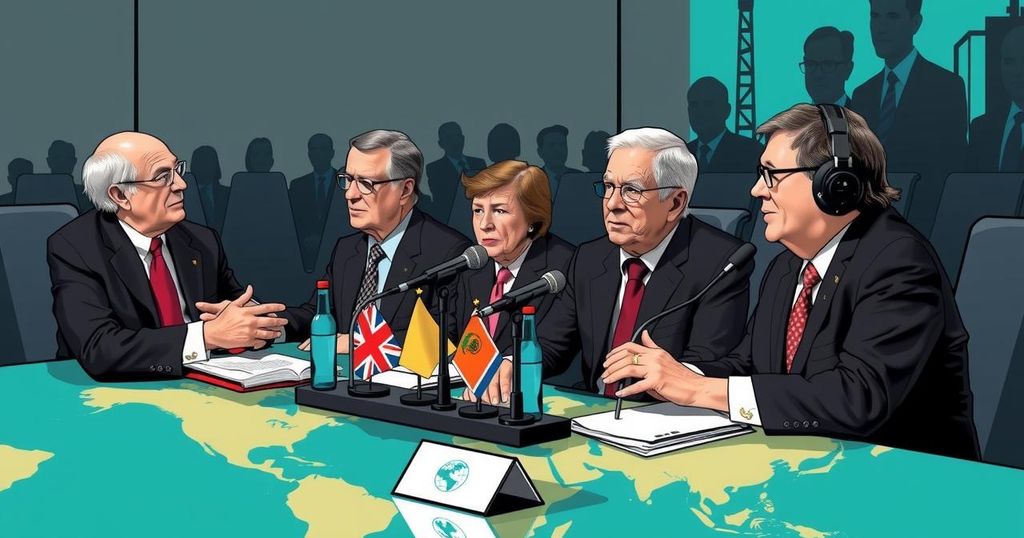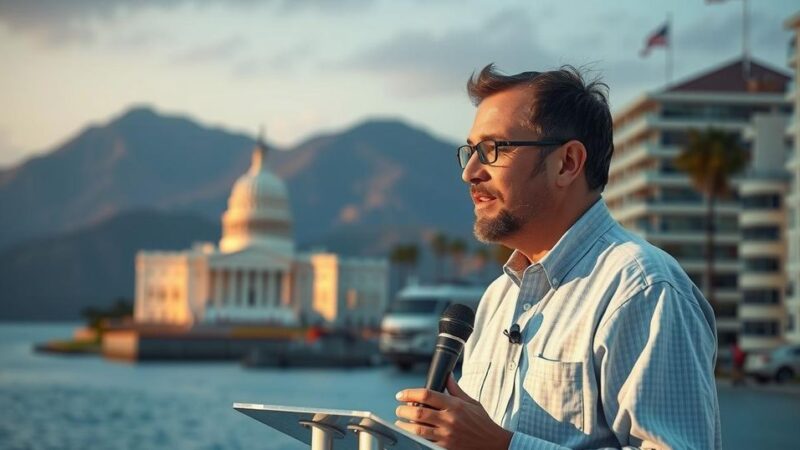As COP29 nears, attendance drops due to leaders’ concerns about host nation Azerbaijan’s human rights record and increasing skepticism regarding COP’s effectiveness. The influential presence of fossil fuel lobbyists at COP raises issues about their impact on serious climate negotiations. Calls for reform suggest limiting fossil fuel interests’ participation to preserve the integrity of these essential climate talks, particularly with COP30 set to take place in Brazil.
As COP29 approaches, attendance from global leaders and climate advocates diminishes, raising concerns about the effectiveness of the conference. Notable figures such as heads of state from major countries and climate activist Greta Thunberg have opted to withdraw due to various reasons, including domestic issues and ethical concerns regarding the host country Azerbaijan’s human rights record. This trend reflects a belief that the United Nations Framework Convention on Climate Change (UNFCCC) meetings have increasingly fallen short of their intended goals, exemplified by Papua New Guinea’s President James Marape’s assertion that these gatherings have become “a total waste of time.”
For three decades, COP has served as a critical platform for global climate action, yielding significant agreements like the Kyoto Protocol and the Paris Agreement. Yet, as global temperatures reach alarming levels and climate denial prevails in powerful nations, public confidence in COP has plummeted. A significant factor contributing to this decline is the overwhelming influence of fossil fuel interests, which have grown more overt in their participation, evidenced by Azerbaijan’s development of an access program for 132 oil and gas executives at COP29. Al Gore denounced this trend, stating that fossil fuel interests have “seized control of the COP process to an unhealthy degree,” prompting calls for change.
The fossil fuel industry has ingrained itself within the COP structure, leveraging the UNFCCC’s Article 4, which acknowledges the economic realities of fossil fuel-dependent nations. Their presence, once deemed beneficial for the transition to clean energy, is now viewed critically. Christiana Figueres, an influential former UN climate chief, notes that if their aim is to obstruct progress, they should be excluded. The increasing number of fossil fuel lobbyists—from 503 at COP26 to approximately 1,770 at COP29—has raised alarms, as these representatives often overshadow those advocating for urgent climate action.
Calls for reform are mounting, with prominent figures like former UN Secretary-General Ban Ki-moon advocating for future COPs to be hosted only by nations committed to the Paris Agreement. This coalition argues that fossil fuel advocates’ substantial presence undermines the legitimacy of the conferences, as their involvement appears prominent yet counterproductive. Environmental groups have pressured the UNFCCC to adopt conflict-of-interest policies to limit the fossil fuel industry’s influence, similar to the WHO’s successful framework against tobacco lobbying.
While some, like Yvo de Boer, argue for the inclusion of these interests due to economic dependencies, activists emphasize the necessity of curtailing their dominance to safeguard the COP’s credibility. As Brazil prepares to host COP30, there is an opportunity to shift the narrative, appealing to a more environmentally focused agenda. The challenge lies in balancing the interests of various member states with the growing urgency for decisive climate action to combat the climate crisis effectively.
The annual Conference of the Parties (COP) is a pivotal event for international negotiations aimed at addressing climate change. Established under the United Nations Framework Convention on Climate Change (UNFCCC) agreed upon in 1992, COP has facilitated critical agreements over the years, such as the Kyoto Protocol and the Paris Agreement. However, recent meetings have been marred by increasing participation from fossil fuel lobbyists, raising concerns amongst climate activists and several nations about the efficacy and integrity of the talks. Calls for reform and clearer policies concerning fossil fuel influence highlight the challenges inherent in achieving credible international climate negotiations.
The future of COP meetings hinges on the balance between fostering inclusive discussions and addressing the overwhelming presence of fossil fuel interests that has diluted meaningful climate action. With growing calls for reform and stricter conflict-of-interest policies, the upcoming COP30 in Brazil represents a pivotal moment. Prioritizing environmental integrity could restore faith in these international conferences as effective platforms for combatting climate change.
Original Source: www.corporateknights.com







